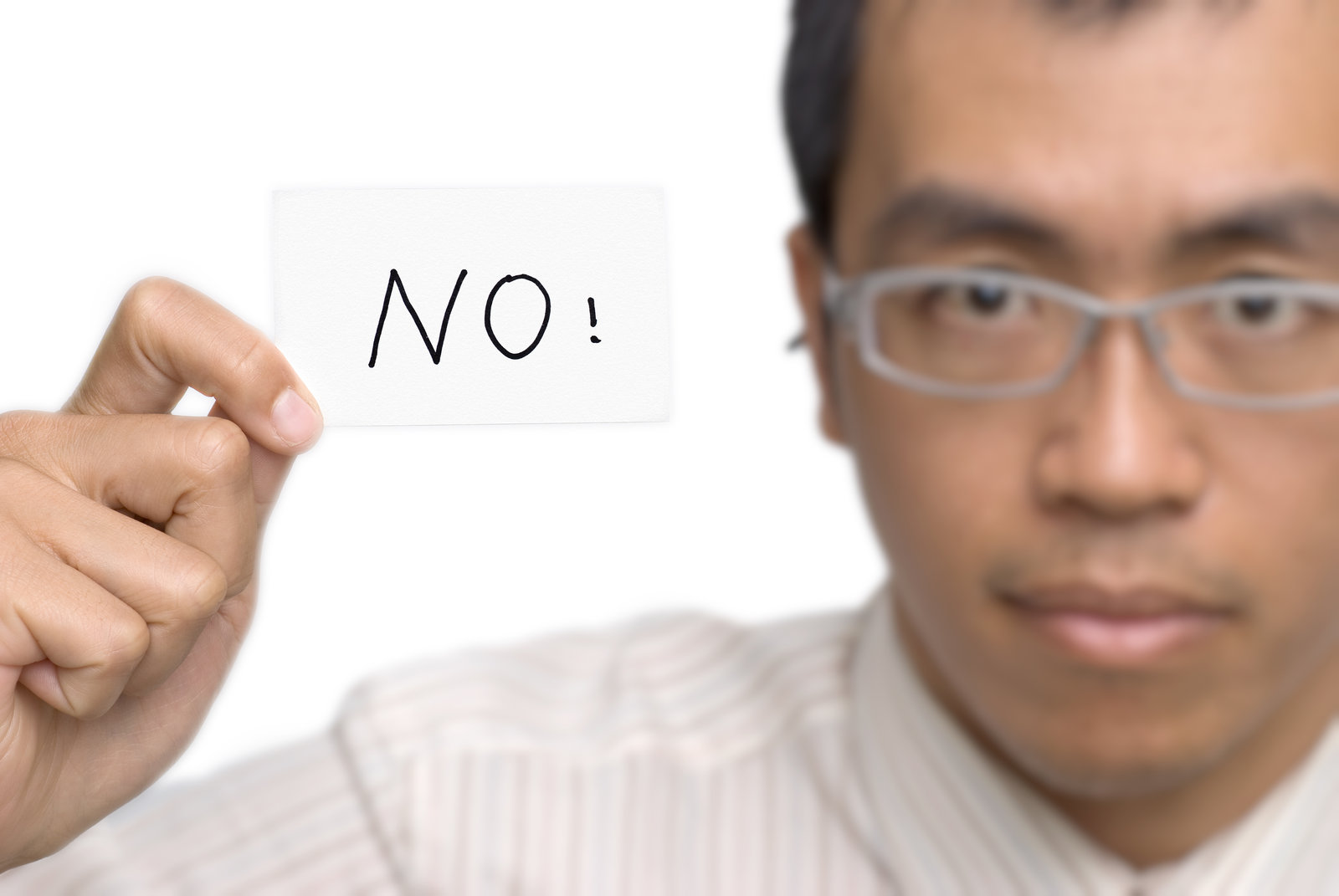How are you with saying “No”?
‘No’, such a small word, but we often struggle to say it because it can hold great power. I like the word ‘no’ because it is definite, but sometimes I would rather not hear it!
We all have times in life where we have to say “no”. Judge each scenario on a case-by-case basis.
How to say “no” well is a skill that we need to practice, develop and master. It can be necessary for our mental health, and that of those around us. When we say “yes” too often, we end up saying “no” to ourselves in the long run. For myriad reasons we will have to say “no” to other people, it could be that we do not have the expertise that somebody else thinks we have, we do not have capacity: time, energy etc. to do what we are asked, OR sometimes it is us that we have to say “no” to.
An often-overlooked element to successful
self-leadership is knowing when to say “no” to ourselves.
There are appropriate times to say “no” to things that are actually good to do, or enjoyable, or beneficial to us or to others, but for various reasons, they are not a priority so we have to decline.
We want to be liked
One of the things that we all have in common is that we're human, by that I mean that we all want people to like us. We can be reluctant to say “no” because we don't want other people to be disappointed with us. We may think that by us saying “no” they will interpret that as us not being good enough, or that we are incapable of taking on more activity / responsibility. The culprit could actually be our pride!
We want to help others
Most people want to help others when we feel we can. Some are more accommodating than others, but generally, if we're approached and asked to do something, we want to assist. In these scenarios it could actually be more difficult, less comfortable to say "no" when appropriate, so we just agree and go along with it. We try and avoid letting people down but have you ever taken stuff on board that actually you could not do, and then failed or became overwhelmed or stuck? Resulting in being unhelpful to the person that asked you?
There are times when we should do things for other people. We should help them in a selfless way. I think that's a good value to adopt and there has to be balance as to how much we live that way. We need to look after ourselves and still build and pursue the things that we feel we're supposed to, or we'd like to. But there should be margin within life to help others when there doesn't seem to be a return or benefit to us.
Are you in a position very often where you have to say "no" to other people or to yourself? And how comfortable are you in saying "no"?
Do you procrastinate, do you put it off or dither?
Do you go backwards and forwards in your mind as to, 'how should I respond?
Asking yourself these questions can really help:
Regarding __________ [fill in the blank], is it appropriate to say "no"?
It could be that your boss has asked you to do something and you don't have scope. But you don't have flexibility or authority within your role to actually say "no" or to push back and say, 'that's not part of my remit, somebody else is best placed for that', or 'I'm not going to have time to do the things that I'm responsible for if I take this on'.
Depending how your boss is wired, saying "no" when it is appropriate, will evoke different responses. If they're more autocratic, they will be more abrupt. They may not be as open to a straightforward "no", (although they may actually respect you more for just out and saying "no" straight off). If they're more laid back and 'laissez faire', there's a stronger chance that they will just accept your "no", for what it is.
How well is your relationship with your boss or your supervisor? Is there a good level of trust and integrity between you and whoever is asking you to do something where you can actually say, "I can't do it", or "no, that's not appropriate"? Will they respect you and think, ‘if they have said no, there's a reason why. They've obviously thought about it and have come to the realisation they just can't do it, it's just not practical, or in the best interest of the company’, or is it more of a case of, 'I've asked you to do it, but it's not really a question'?
Is it a priority?
With the things that you want to achieve, the areas where you want to grow, would saying "yes" actually be contributing to these, or would it actually be a detriment?
Would it be a distraction from focusing your time and energy?
What decides this? Is it a valid reason?
It can come down to motive. Why are you saying "no"? Is it that you just don't want to do it? Or you don't feel like doing it now? Or are you just maxed out with enough responsibility and something else which you need to pursue and progress is going to suffer if you take something else on?
What would be the best way to respond when it is appropriate to say "no"?
You’ve realised that you need to say "no". How are you going to respond? Saying "no" doesn't have to be negative, it can be dependent on how it is communicated. Can you avoid a drama?
Try and create a win/win scenario. Try to respond and do something where everybody benefits. Could you soften the blow to the other person by suggesting an alternative for them? Realising that if they've asked you to do something, they need to get it done, and if you're not able to accommodate that request, they still need to get it done. Is there a way you could suggest somebody else, or a different approach to help them progress and complete what they need to do?
For those of you that are familiar with DISC, if you're more of a 'D' type personality or the person that you're talking to is a 'D' type personality, then they're more likely to be abrupt. You could be more direct and just say it like it is and they're more likely to receive it. Whereas if you're an 'I' type personality, you might struggle actually saying "no" or communicating it in a way that you know is actually not going to be received as well as you'd like.
There are times when we have to stand our ground. We have to say, "no, the decision is final", and if you are an 'S' or a 'C' type personality, there are different levels where you will be comfortable with that. Regardless of what type of personality you are, we're all capable saying "no". We should all say "no" at different times. But make sure we've assessed whether it is appropriate to say "no" in each scenario.
Self-leadership: are we saying "no" enough to ourselves, are we moved by emotion too much and end up doing the things that we just feel like doing rather than following through on what is most important?
Are you putting something off at the detriment of your future that you really need to do and you need to say "no" to certain distractions, or to other people in order for you to do what you need to do?
Leading others: How do you respond when you ask somebody if they can do something, if they have capacity to take on something new and they say "no"?
Have you created a healthy culture, good relationships with psychological safety where people feel they can say "no" when appropriate, rather than just, "yes, boss, I'll do that", and then they've got too much stress, too much pressure, and the output of their activities is actually below par, less than the quality that you would expect or that you need it to be?
In a healthy culture, people should be able to flag up and when appropriate say, "Thanks very much for the opportunity of doing this. I'm thrilled that you think I can do it. But if I do this, something else needs to be allocated to somebody else or somebody else will need to provide support".
Remember that saying "no" is a natural thing. We do have to do it now and again, and it's healthy to set our own boundaries with other people because other people are not necessarily aware of the things we're trying to pursue or progress and will have different priorities, timescales and different schedules to ours.
How we communicate the "no" can make all the difference to the outcome, wherever possible try and make it a win/win for everybody.
Think of a few ways that you can say “no” well...
Explore other aspects of living successfully and experiencing MORE fulfilment by developing your self-leadership. Get the book, 'YOU Lead You - self-leadership instead of self-sabotage'. More info here.
I believe in YOU, and I believe in YOUR potential!
CONTACT
TSLDS ©2025



